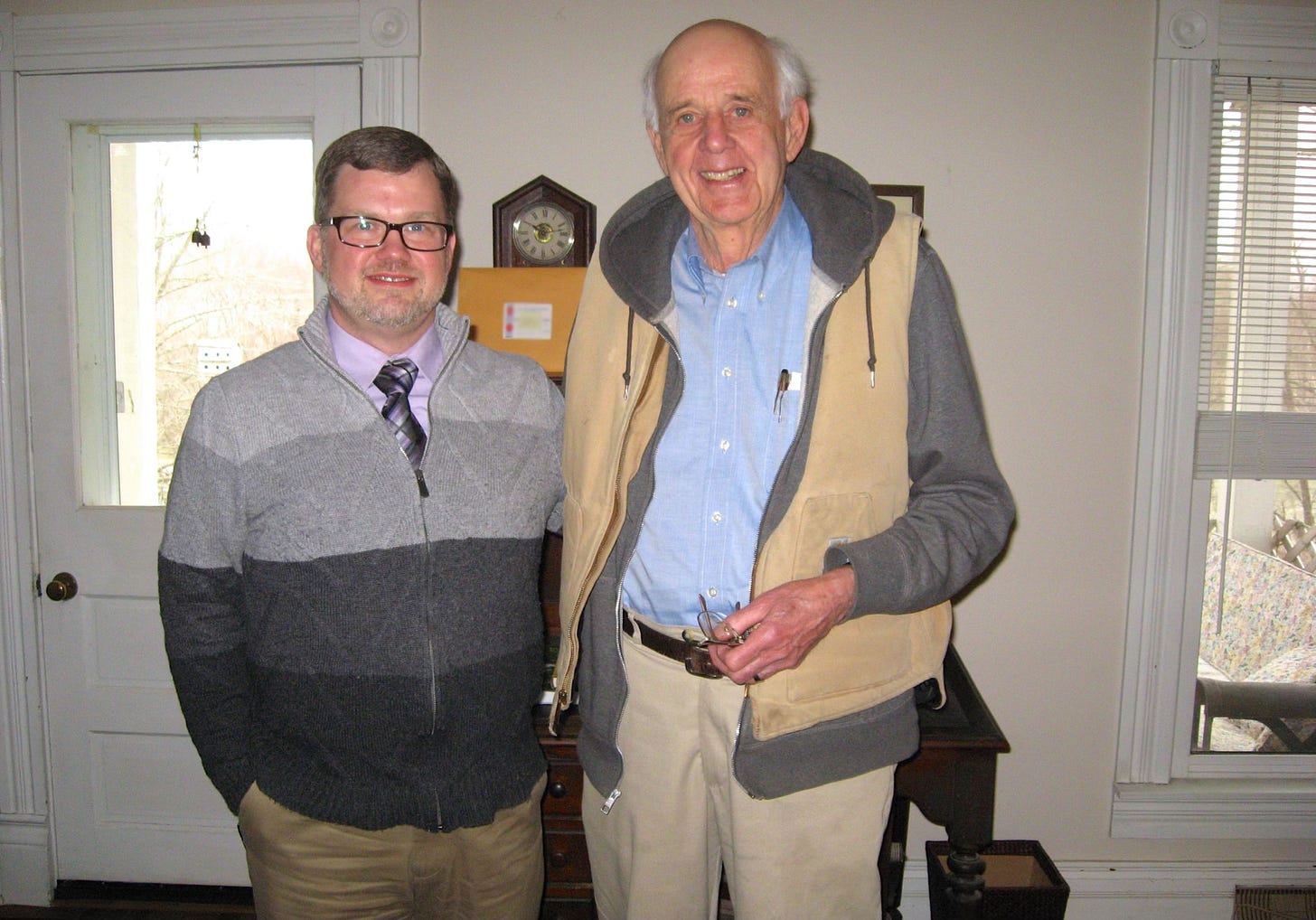All the Time in the World
An afternoon with Wendell Berry—and the permission I never knew I needed
Years ago, I spent an afternoon at Wendell Berry’s house.
Yes, that Wendell Berry—Kentucky farmer, poet, novelist, essayist—whose words have shaped how generations think about land, community, time, and what it means to live well.

We sat in his living room for three hours over coffee, surrounded by bookshelves that felt like they’d grown there. The conversation paused only once—when he stepped out to help birth a lamb.
While he was in the barn, his wife Tanya poured me another cup and asked about my work with congregation leaders. When he returned, we traded signed books—his latest, The Mad Farmer Poems, for my first. Before I left, I asked if Tanya could take a photo. Wendell agreed, but only if I told people he was wearing his “obstetrical clothes.”
Somewhere between talking about the state of the world, writing, and religion—he called himself a “bad weather Baptist,” only going to church when it’s too bad to be outside—I told him about my daughter.
She had just finished her first year of college, realizing her major wasn’t for her but not yet knowing what she wanted instead. That liminal space—where the old answer is gone and the new one hasn’t arrived—is hard to stand in. Especially when the world keeps asking, So, what’s next?
He listened, then said:
“You tell her she has all the time in the world.”
From his mouth, it wasn’t advice. It was a blessing—the kind that hands you back your freedom.
“All the time in the world” isn’t about drifting. It’s about refusing the myth that your life must keep pace with society’s stopwatch. It’s about trusting your own unfolding, and letting the next step come from sovereignty rather than fear.
Since then, I’ve had my own in-betweens—times I knew it was right to leave without knowing where I was going. Moments when all I had was the ache of an ending and the silence of a beginning.
The hardest part isn’t the waiting.
It’s resisting the urge to fill the space with something—anything—just to quiet the uncertainty.
Wendell’s words distill the first shift in what I call the Sacred Disruption framework: reclaiming your autonomy—learning to trust what you actually think and feel, instead of what your boss, your family, or the culture tells you is “right.”
Sometimes that reclamation begins with a decisive choice.
Sometimes with a slow conversation.
And sometimes with a single sentence that feels like permission to breathe.
Maybe Wendell’s words weren’t just for my daughter.
Maybe they’re for you.
If you’re standing between who you’ve been and who you’re becoming—
If you feel the pressure to decide, to know, to produce, to prove—
If you’re tempted to confuse momentum with meaning—
You have all the time in the world.
Reflection Prompt:
Where in your life could you let go of the timeline and let the story unfold at its own pace?


And you blessed me with, "hands you back your freedom."
Thank you for sharing your insight/writing gift with us.